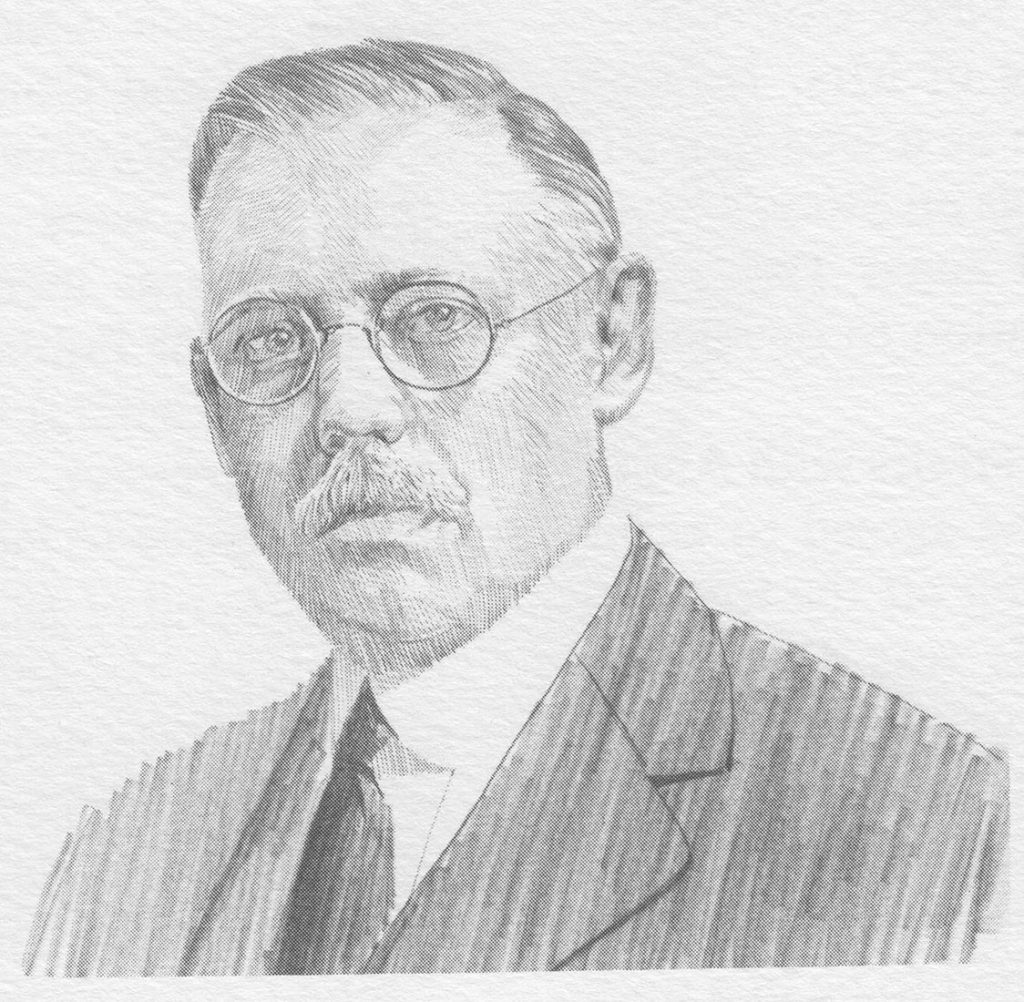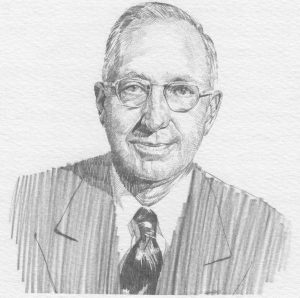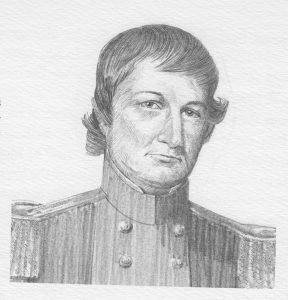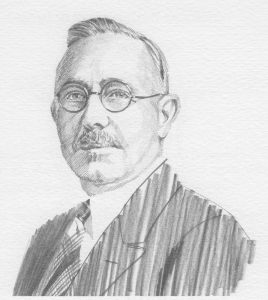William P.G. Harding made an enduring contribution to the formation of our nation’s unique form of central banking – the Federal Reserve System.
This native Alabamian served on the Federal Reserve Board from the day it was formed on August 10, 1914, until the expiration of his eight-year appointment on August 9, 1922. During
the last six years of his term, he was the Board’s Chief Executive Officer (then known as Governor) through the trying times of World War I and the troublesome post-war period. His book, The Formative Period of the Federal Reserve System, published in 1925, is still one of the best accounts of how the U.S. finally established a more lasting central banking system.
William P. G. Harding was born in Greene County, Alabama on May 5, 1864 – son of Horace and Eliza (Gould) Harding. Soon after the War Between the States, the family moved to Tuscaloosa, where young William received his early education under well-known local tutors. The family’s home was not far from the campus of The University of Alabama, which he entered in 1878. He received an AB degree in 1880 and an AM degree in 1881. At the age of seventeen, he was the youngest student to have received that degree. After graduation, he took a brief course at a business college in Poughkeepsie, New York, before returning to Alabama.
In 1882, he became a clerk and bookkeeper for a private bank in Tuscaloosa – the J.H. Fitts & Co. (now First Alabama Bank).
In 1886, he moved to Birmingham to work as a bookkeeper for Berney National Bank. Promotion came slowly, but by 1893 he had risen to the position of Cashier. In 1895, he married Amanda Moore, daughter of Sydenham and Mary Moore, who had moved from Eutaw to Birmingham. In 1896, William P.G. Harding moved to the First National Bank of Birmingham as Vice President. By 1902, he had become President of First National, which was then the largest financial institution in the state with oneseventh of all the deposits of all national banks in Alabama.
Soon after his elevation to the Presidency, the young Hardings moved to the “most fashionable neighborhood in town.” Their neighbors were another Tuscaloosa family who had moved to Birmingham – the Robert Jemisons. Years later, Robert Jemison, Jr., who called Harding a close personal friend, provided an insight into the character of Alabama’s first central banker, when he recalled:
Unfortunately, very few people knew and appreciated Mr. Hard ing, particularly as a good citizen because he was not the type of person who knew how to ‘sell himself,’ or mix with people in a gracious and cordial manner. He was essentially a student and would often let his mind drift into thoughts and ideas while in the presence of people with whom he should be interested in what they were discussing at the time.”
William P.G. Harding became a strong figure in the economic life of Birmingham, the State, and the region. He served on the Board of Directors of the Birmingham Railway, Light and Power Company. He was the primary motivator behind three well-known Birmingham landmarks -Elmwood Cemetery, the Tutwiler Hotel, and the City of Fairfield. His astute financial advice enabled others to make these projects succeed. In 1908, bankers in the State acknowledged his abilities by naming him President of the Alabama Bankers’ Association. In 1913, he served as President of the Birmingham Chamber of Commerce.
Then in 1914, William P.G. Harding was chosen as the South’s representative on the first Federal Reserve Board. About his appointment, he later wrote:
“I felt complimented upon my selection to be a member of the Federal Reserve Board, a body about which there had been so much talk for several months. I had no idea, however, at first of accepting the offered appointment. I was a native of Alabama and had been for twenty-eight years a resident of Birmingham. I had seen the place grow from a town of ten thousand to a city of more than one hundred and fifty thousand inhabitants, and had been promoted from a bookkeeper’s desk to the presidency of the largest bank in the State.”
But a letter from President Woodrow Wilson convinced William P. G. Harding to accept the eight-year appointment. He accepted the “great opportunity to serve the country” and made “the sacrifices necessary to accept.”
He divested himself of all business ties in Alabama, including that of the bank, and agreed to serve at a salary of only $12,000 annually. When he was sworn in as a member of the first Federal Reserve Board on August 10, 1914, he became Alabama’s first central banker.
During the next eight years, William P.G. Harding, as a member of the Board, assumed an enormous amount of work and responsibility. The Board had to supervise the creation of the twelve regional Federal Reserve Banks, the selection of their directors, and the appointment of their staff. Even the construction of the buildings to house the banks was a massive undertaking.
The greater burden of the Board arose from the start of World War I, which put enormous pressure on the financial system of the United States. Harding served as Governor of the Federal Reserve Board during this time. He also served -without any additional pay – as Managing Director of the War Finance Corporation, created by Congress to finance the United States’ participation in the war.
A post-war recession brought controversy about the Federal Reserve System and even bitter attacks on Harding from a senator from Alabama on the floor of the Chamber. Because of the controversy and the fact that William P.G. Harding had no close relationship with the newly elected President Warren P. Harding, it was not surprising that the President chose not to re-appoint the Federal Reserve Board’s Governor. In 1923, William P. G. Harding accepted an appointment as governor of the Regional Federal Reserve Bank in Boston.
Through the years, Harding received honorary degrees in recognition of his accomplishments. In 1916, The University of Alabama conferred an L.L.D. and for years after continued to feature him at commencement services. He also received honorary degrees from Harvard and Columbia Universities in 1922.
William P.G. Harding died in Boston on April 7, 1930. At his request, he was buried in his old hometown of Birmingham in Elmwood Cemetery.
Those who knew him best have said that he “loved Alabama and he loved Birmingham. He was one of Alabama’s and Birmingham’s most loyal citizens.”
(Biographical information derived primarily from a paper by Philip C. Jackson, Jr.)




